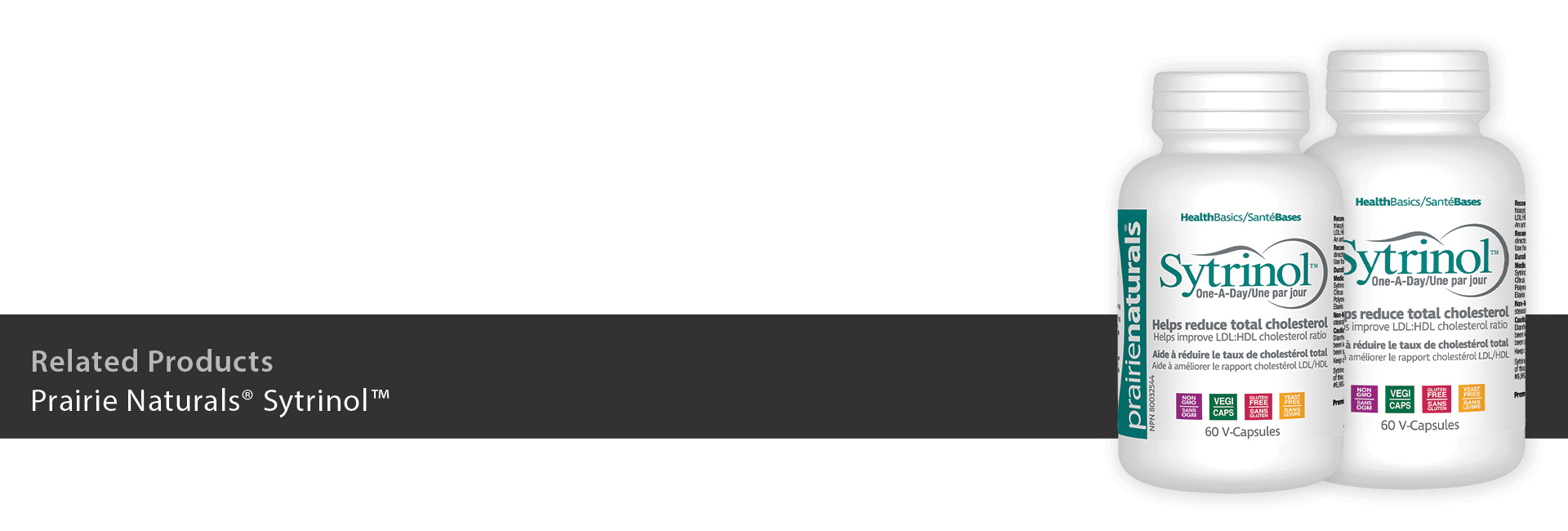February is officially heart month in Canada! It’s the perfect time to learn about cholesterol and how it affects the health of our cardiovascular system.
What is the Cardiovascular System?
Our cardiovascular system, also known as the circulatory system, is an organ system that encompasses our heart and all the blood vessels in our entire body. This intricate system functions every second of every day, carrying blood, oxygen, and nutrients to organs and tissues throughout our body. It also carries away waste and carbon dioxide from these tissues.
Inflammation & Cholesterol
Keeping our cardiovascular system in good condition is one of our best strategies for creating overall good health. As we age, our heart and circulatory system become increasingly vulnerable to diseases linked to inflammation. When high cholesterol levels accumulate in inflamed areas of blood vessels, a reduction or even a blockage of blood flow occurs.
Cholesterol is Not All Bad!
There is no health topic as controversial and confusing as cholesterol! The fact is that cholesterol has a positive role to play in good health. This waxy, fat-like substance comes partially from the diet, but it is primarily made by the liver. Cholesterol is needed to make many hormones and keep our cell membranes healthy and intact. It is also essential to the synthesis of vitamin D, and the production of bile acids needed for fat digestion. But too much of it in the blood, or too much of the wrong kind, can clog arteries and increase the risk of heart disease and stroke.
HDL vs LDL Cholesterol
Cholesterol is carried through the bloodstream attached to two different compounds called lipoproteins: low-density lipoproteins (LDL) and high-density lipoproteins (HDL). LDL is commonly known as the “bad cholesterol.” It carries cholesterol from the liver throughout the body, making it available to potentially be deposited on arterial walls. HDL is known as the “good cholesterol,” transporting good fats in the blood to cells or back to the liver to be recycled or eliminated from the body.
Sytrinol – Citrus Fruit Peel Extract
With literally hundreds of studies showing that commonly prescribed drugs have dangerous adverse side effects, it’s only natural that people want a safe and effective solution to their cholesterol problem. Sytrinol, a patented citrus fruit peel extract with antioxidant properties lowers cholesterol in 30 days. Sytrinol has a natural product number (NPN) and is licensed by Health Canada for the reduction of serum triglycerides, total cholesterol and LDL cholesterol. It also helps improve the LDL: HDL cholesterol ratio while maintaining and supporting cardiovascular health.
Effective, Safe & Natural
Sytrinol’s active compounds (polymethoxylated flavones and palm tocotrienols) make it an effective and natural cholesterol-lowering supplement. The therapeutic ingredients in Sytrinol are also powerful antioxidants that help to control inflammation, inhibit arterial plaque formation, and reduce blood platelet aggregation (clumping). Three separate studies showed that taking 300 mg of Sytrinol a day for four weeks lowered total cholesterol by 25 to 30 percent. Sytrinol also lowered “bad” LDL cholesterol by 19 to 22 percent and triglycerides by 24 to 34 per cent. And not only did Sytrinol lower LDL, but it also increased levels of the “good” HDL cholesterol. Sytrinol worked independently of dietary changes. In addition, toxicity studies have shown that Sytrinol is well tolerated with no toxic effects.
Focus on Heart Health – Naturally
Cardiovascular disease accounts for the deaths of more Canadians than any other disease. Not long ago, men were considered the primary victims of heart disease but in recent years more women die of cardiovascular disease than do men. The good news is that 90 percent of people can control their own cholesterol levels.
Doctors increasingly suggest integrated approaches to heart health that combine diet, lifestyle, nutritional supplementation, exercise and attitude with qualified professional health care. This holistic style empowers us all to actively participate in creating our own natural health plan for a healthy heart.
10 Simple Healthy Heart Habits:
- Drink plenty of water
- Eat lots of high-fibre foods
- Increase plant-source proteins like hemp and rice
- Fill up on veggies
- Eat more apples and citrus fruit
- Include whole grains in your daily diet
- Eat a few walnuts every day
- Eat more flax, hemp and buckwheat
- Reduce the sodium in your diet
- Eliminate soft drinks





